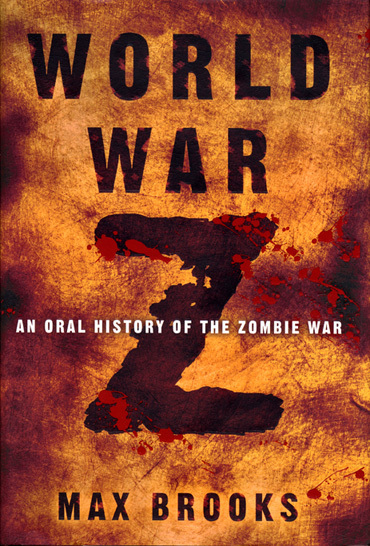World War Z: An Oral History of the Zombie War by Max Brooks stands as a groundbreaking entry into the realm of both horror literature and social commentary. What if a zombie apocalypse were to derail civilization as we know it? Can we survive not just the undead, but the disarray of humanity itself? Brooks dives deep into these questions, offering readers not just a narrative filled with horror, but a poignant reflection on societal response to crises. As the reader traverses through the annals of a fictional global disaster, one cannot help but ponder: are we prepared for our own calamities?
This unique take on the zombie genre refrains from following the traditional guide of gore and violence. Instead, it immerses you in an oral history format, presenting a plethora of first-hand accounts from a diverse cast of characters. Each essay-like vignette adds a new layer to the overarching narrative, offering a kaleidoscope of perspectives as the world grapples with the hybrid monster of societal collapse and the undead.
From military strategy to personal loss, Brooks deftly weaves together a tapestry of individual experiences that reflect broader themes of resilience and despair. The juxtaposition of triumph against the backdrop of overwhelming adversity lends itself to an intricate portrayal of humanity’s true nature when faced with existential threats.
One of the most remarkable attributes of World War Z is its multi-faceted exploration of varied geopolitical landscapes. The novel refuses to be confined to a single location. Instead, it traverses continents, delving into how different cultures and governments respond to the same catastrophic event. This leads the reader to contemplate important questions: Would your government rise to the occasion during a crisis? How would different cultures cope? The sheer variety of voices—ranging from military personnel to civilians—represents a microcosm of human behavior in the face of unfamiliar challenges.
The narratives presented in the book represent a symphony of voices that echo the anxieties of the modern world. The inclusion of a character who was a renowned hockey player, for example, lends an unexpected humanity to the chaos, demanding that the reader confront their own notions of heroism. How do we define heroes in times of widespread panic? As individuals recount their experiences of survival or sacrifice, isolated incidents become emblematic of collective existence and push the boundaries of perception regarding the human condition.
The novel’s brilliance also lies in its methodical dissection of societal fabric. Brooks efficiently highlights governmental ineptitude and the psychological turmoil that ensues when people feel neglected by those in power. Amid the carnage, a sense of mistrust burgeons as contrasting narratives emerge about individual government responses versus the general citizenry’s experience. It ultimately raises the tantalizing question: how do trust and communication unravel under the pressure of societal breakdown?
The horror does not solely reside in the flesh-eating ghouls clamoring for survival; rather, it sprouts from within the human psyche. Themes of fear, anxiety, and social fragmentation weave intricately through the text, reminding readers that, while the external threat may be corporeal, the internal struggle can often prove more harrowing. The relentless portrayal of fear encourages an introspective journey, pushing readers to engage with their own vulnerabilities and resilience.
Furthermore, the potential for an impending apocalypse serves as a metaphor for contemporary socio-political anxieties. With these reflections, Brooks beckons the audience to consider parallels with real-world events—epidemics, wars, and other disasters. The undercurrents of social commentary compel readers to reassess their own readiness to face emergencies, be they personal or collective. Are we as a society equipped with the empathy, ingenuity, and willingness to act when faced with chaos? This looming challenge undergirds the narrative and elicits a visceral response.
Additionally, the craft of Brooks’ prose is commendable. The vividly descriptive passages balance the hush of silence with pulsating action. Readers often find themselves captivated by the meticulous attention to detail, which amplifies the severity of each account. The eloquent articulation of harrowing scenarios deftly contrasts with lighter moments, showcasing Brooks’ ability to oscillate between the profound and the absurd. This dynamic tonal variation transforms what could be a solely alarming narrative into a reflective and sometimes humorous exploration of survival.
In conclusion, World War Z is not simply a tale of terror; it is a clarion call to examine our preparedness, resilience, and societal cohesion in times of crisis. It pushes boundaries, subverts expectations, and presents readers with challenges that extend beyond the text. As one contemplates the collision of humanity and the undead, a deeper understanding emerges: our greatest battles may arise not from the monsters outside but from the monsters within. Are we ready to confront both? The answer, dear readers, may determine our fate.
